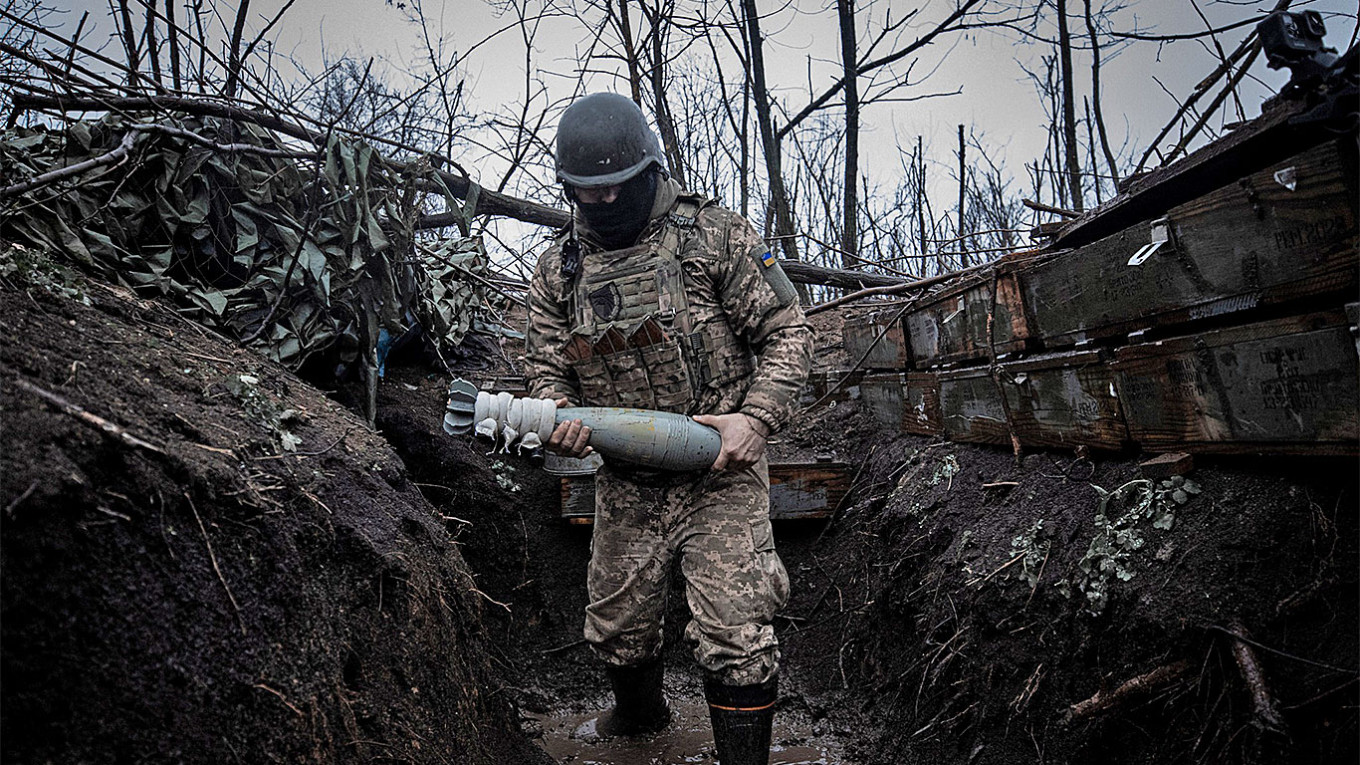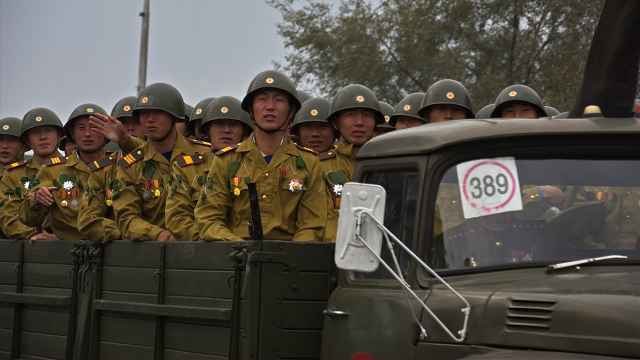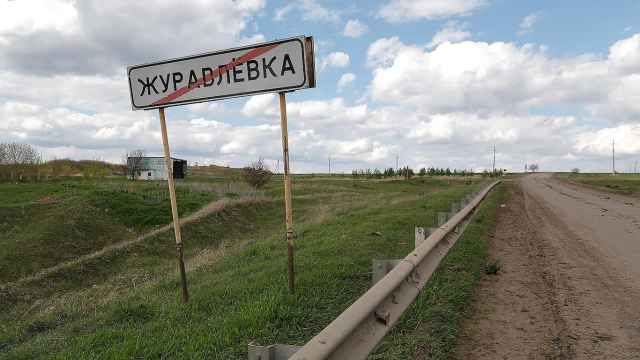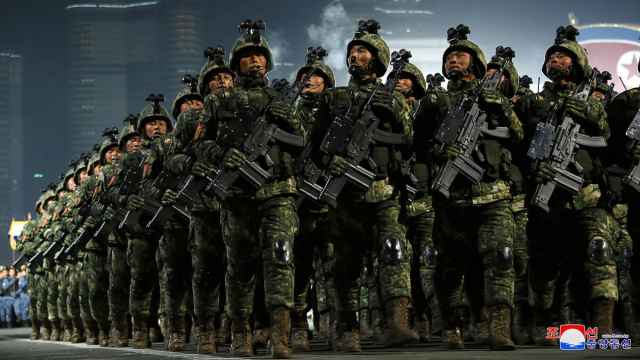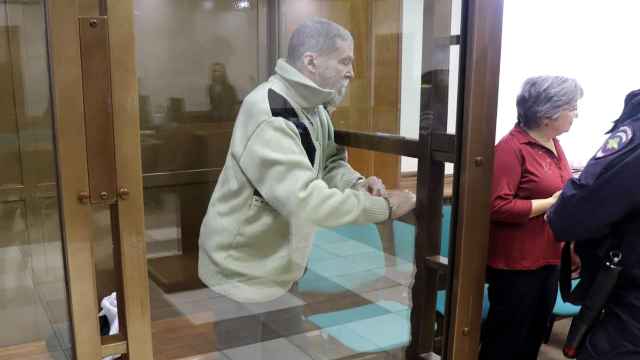The new year and approaching anniversary of the invasion of Ukraine have put the spotlight on the West’s strategy for supporting the country. Many commentators have already stressed that we are approaching a crux, maybe even a climax, in this war. But preventing a Russian victory may require rethinking what success looks like for Ukraine.
Ukraine's long-anticipated 2023 counteroffensive failed. Despite the bravery and skill of the Ukrainian troops, it was never likely to succeed as much as its proponents hoped and predicted. The Ukrainian armed forces were trying to breach heavily fortified, prepared Russian positions, without air superiority or favorable combat ratios. Many of the assault brigades were only recently formed, under-trained and inexperienced.
The Ukrainian forces (UAF) lacked the command capacity to coordinate a concentrated combined arms assault. Rather than one major operation, the counteroffensive consisted of a series of small tactical assaults on three axes — Orikhiv, Velyka Novosilka, and Bakhmut — supported by artillery and missile strikes against Russian targets behind the frontlines. Some attacks worked: several villages and small towns, such as Robotyne, Makarivka, and Urozhaine, were liberated. But overall, there were no decisive gains.
Ultimately, Kyiv lacked the combat power to breach Russian defenses. Even if UAF had breached the Surovikin line it seems probable the offensive would have culminated in an urban battle around Tokmak, Melitopol, or Mariupol. They just did not have the combat power or the operational expertise to conduct their forces.
Despite horrendous losses of men and materiel, Russia has endured. It has regenerated its force throughout 2023. Putin has raised tens of thousands of new recruits through new conscription measures. As a result, there are estimated to be about 300,000 Russian troops in Ukraine. It has fortified the territory it has taken. It has at least a three-to-one advantage in artillery — and often more.
Ukrainian forces fired 8,000 artillery shells a day during the counteroffensive in the summer; they accounted for 80% of Russian losses. They are now firing 2,000 a day. The Russians, by contrast, are firing 10,000 shells a day.
It is imperative that Ukraine wins this war. Russia’s aggression has to be resisted. Recently, President Zelensky still defined winning as retaking all Ukraine’s stolen territory including the Donbas and Crimea.
Ukraine has the right to its land, and the full reintegration of Ukraine would be desirable in the ideal world. But is it a realistic basis for a coherent strategy for 2024? It seems unlikely. Just though it may be, a maximalist Ukrainian strategy may be counterproductive. It may be weakening Western support, rather than energizing it.
It seems improbable that a 2024 offensive would be any more successful than the one in 2023. The conditions the UAF faces are worse. Combat ratios have decisively shifted in Russia’s favor, even if almost all its professional troops who started this war have been killed or wounded. Including local militia, the Ukrainian army today is a large force, and much bigger than the one which repelled the invasion. Only a fraction of the ranks are occupied by combat troops. Their precise number is unclear, but Ukraine may have about 150,000 - 200,000 active soldiers (about 30-40 brigades). But these troops are better trained and have much higher morale than their Russian opponents.
Yet the UAF is still outnumbered. Russia has re-equipped its army. Its fortifications have been strengthened. Without a huge increase in Ukrainian troop numbers, firepower, and airpower, it is almost inconceivable that a major offensive could succeed. It may even be unwise to mount it in the first place.
Does this mean Ukraine and the West should just give up and admit defeat? Not at all. This war can and has to be won. The realistic assessment that another Ukrainian counteroffensive cannot succeed, recommends only a refinement of strategy – not an admission of failure.
On Feb. 24, when Russian tanks rolled across the border, most observers believed that Ukraine was doomed. Russia would defeat Ukraine’s armed forces and depose Zelensky, they said. Instead, Ukraine inflicted a terrible defeat on Russia in 2022, defending most of its territory and united as a genuine, democratic republic. It won. The fact that it is unlikely to be able to re-integrate the Crimean peninsula or much of Zaporizhzhia and the Donbas cannot take away that remarkable victory.
However, to hold onto the victories of 2022, Ukraine — and its Western backers — need a new strategy. Instead of pursuing an unrealistic strategy of expelling Russia from the all territory it has taken, the new strategy should focus on consolidating what it has.
An aggressive defensive strategy seems more likely to succeed. Russia may end up keeping the land it has illegally invaded. But the prize of any further aggression against Ukraine would be catastrophic. Ukraine needs to secure the terrain it currently holds and make it impossible for Russia to encroach upon it, or to threaten it again.
To repel Russian forces and deter the Kremlin from advancing, Kyiv and its allies need a new strategy. The Ukrainians should construct a network of citadels and strongpoints in and around frontier towns and villages, so the Russians could only take them at great cost. Those strong points would serve as the bastions from which the Ukrainian army could use artillery and rocket strikes to repel any incursion, supported by special forces raids into the enemy’s rear. This is a strategy that was decisive in repelling the initial phase of the invasion, especially around Kyiv, Chernihiv and Kharkiv.
At the same time, the Ukrainian forces should seek to attack Russian forces behind the front, targeting headquarters, logistics hubs, and areas where troops are concentrated deep in Russian-held territory. At the same time, the Ukrainians should continue targeting Crimea with strategic artillery, rocket, and drone strikes, supported by naval attack and block against Sevastopol.
Since the summer of 2022, the Ukrainians, masterminded by General Budanov, have carried out attacks on Russian sovereign territory. Some of these attacks, like the assassination of Darya Dugina (the daughter of the notorious Russian nationalist sociologist, Alexander Dugin) and the alleged attacks on the Nord Stream pipeline, have been controversial. However, to maintain pressure on the Kremlin, careful and precise kinetic and cyber strikes against critical national infrastructure in Russia may prove effective, such as the recent attack on the fuel terminal in St. Petersburg.
Ukraine cannot execute this strategy alone. Continued and increased Western support throughout 2024 and into 2025 is imperative here. Without it, Ukraine’s victory may descend into a defeat.
What should the West do? The West must increase the training of Ukrainian troops. It should accelerate the training and education of staff officers to generate brigade, divisional and corps-level headquarters capable of conducting genuine combined arms operations — not just tactical missions.
The West must increase the production and supply of artillery shells; this is imperative. Kyiv's allies must also increase the supply of advanced missiles, rockets and artillery, as well as fighter aircraft to execute strikes in Ukraine. The provision of air defense systems to protect Ukrainian civilians must also be enhanced.
Finally, and most controversially, NATO members must agree to admit Ukraine to the alliance on the day after the war is over. The West has a duty to do this. Even more importantly, NATO membership is the only way to guarantee Ukrainian security in the long term. Before Feb. 24, NATO membership for Ukraine seemed unwise as it could provoke Russia by threatening its strategic access to the Black Sea. The situation has now changed completely. The question is not of Western provocation — but of actively containing and deterring Russia from future attacks.
It is deeply regrettable that the full reintegration of Ukraine's territory is unlikely. Russia’s aggression is deplorable, and the deaths and misery it has inflicted cannot be forgotten. But if this war ends in 2025 with most of Ukraine intact and as a thriving member of NATO and eventually the EU, that is hardly a defeat — especially when we think back to February 2022. It is better to follow a successful pragmatic strategy, than one that is morally justified but impractical.
A Message from The Moscow Times:
Dear readers,
We are facing unprecedented challenges. Russia's Prosecutor General's Office has designated The Moscow Times as an "undesirable" organization, criminalizing our work and putting our staff at risk of prosecution. This follows our earlier unjust labeling as a "foreign agent."
These actions are direct attempts to silence independent journalism in Russia. The authorities claim our work "discredits the decisions of the Russian leadership." We see things differently: we strive to provide accurate, unbiased reporting on Russia.
We, the journalists of The Moscow Times, refuse to be silenced. But to continue our work, we need your help.
Your support, no matter how small, makes a world of difference. If you can, please support us monthly starting from just $2. It's quick to set up, and every contribution makes a significant impact.
By supporting The Moscow Times, you're defending open, independent journalism in the face of repression. Thank you for standing with us.
Remind me later.



